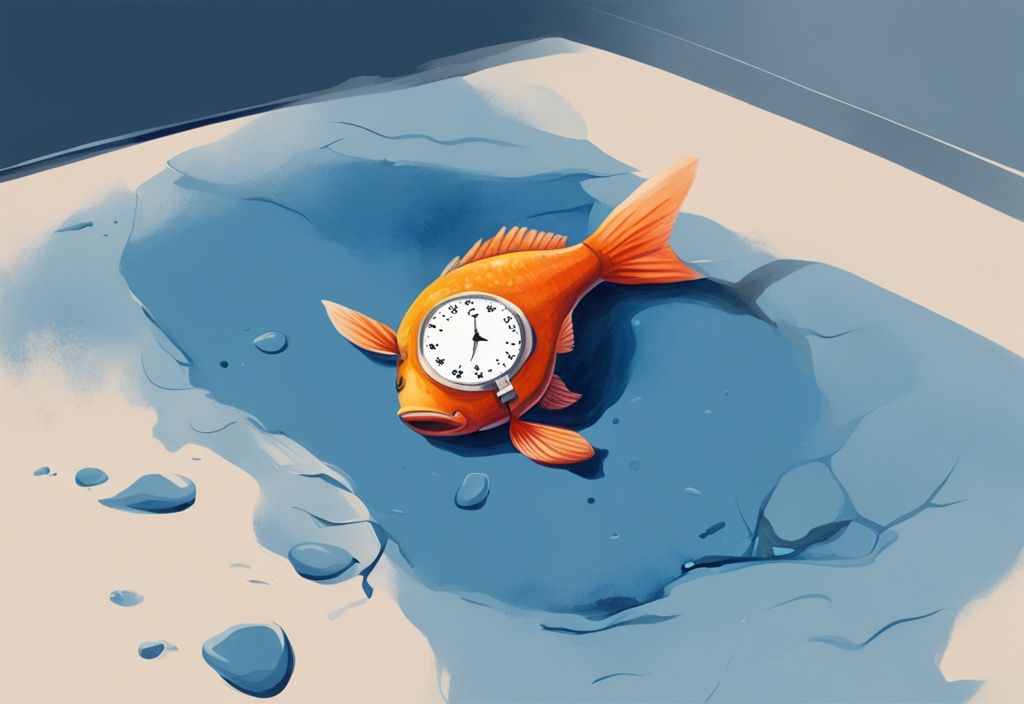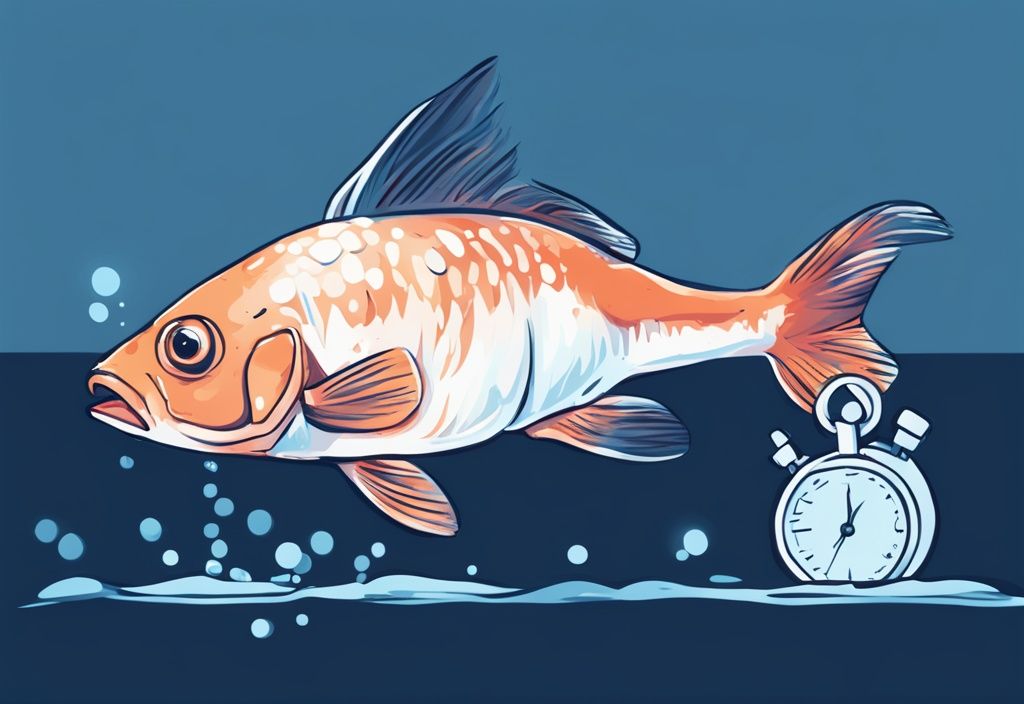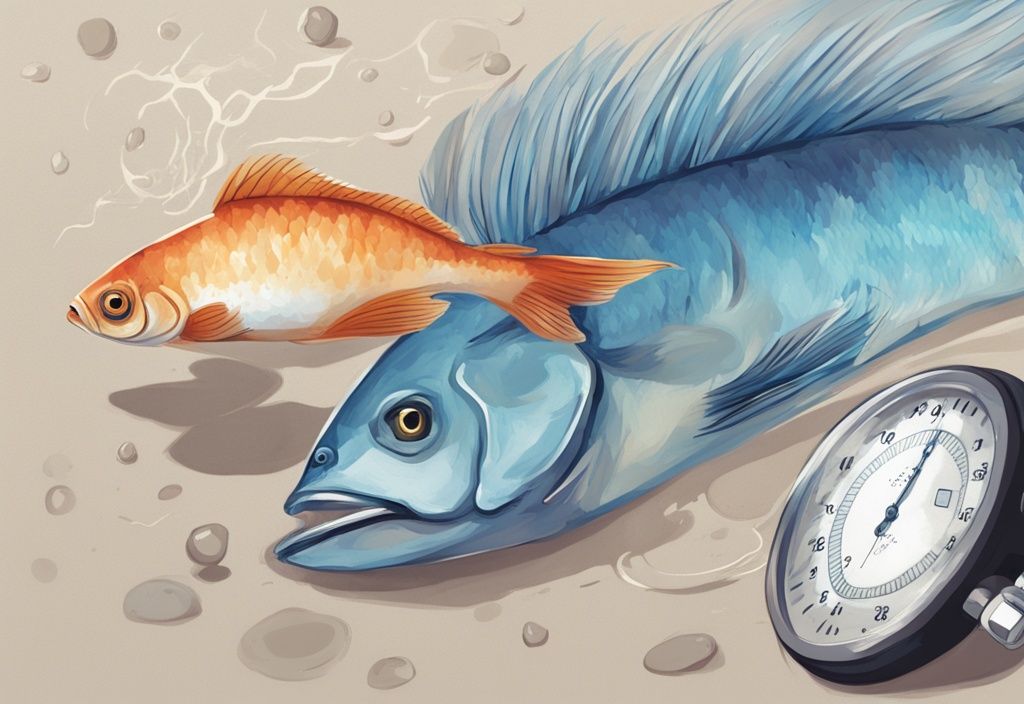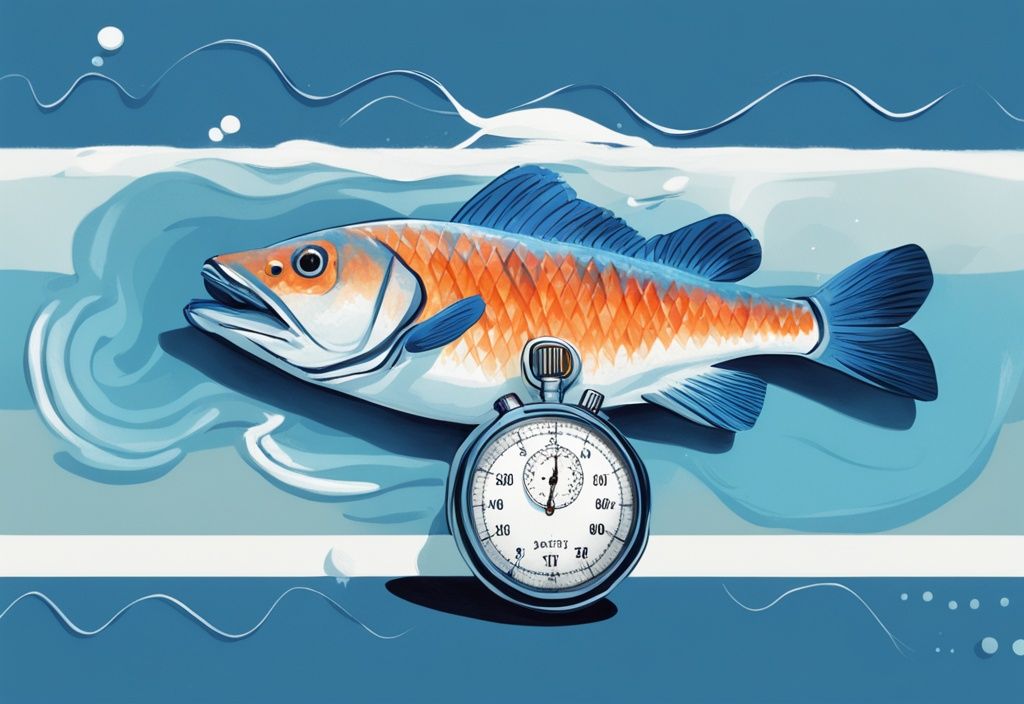Picture this: you’re on the dock, the sun warming your back, and a fish is flopping at your feet. How long can it last out here? You might be surprised. While most folks think fish are goners the moment they hit the air, some species have a knack for survival that defies expectations. This isn’t just a quirky fact—it’s a testament to nature’s adaptability. For us anglers, understanding this can make all the difference. So, let’s dive into this watery mystery and see what makes these finned escape artists tick.
Understanding Fish Survival Out of Water
Fish survival out of water is a topic that never ceases to amaze me. Imagine this: you’re out on the lake, the sun warming your back, and you reel in a fish. Ever wondered how long it can survive out of its watery world? Well, it varies quite a bit among different species. Most fish rely on gills to breathe, drawing oxygen from water like we do from air. But once they’re out of their element, their survival hinges on a mix of species-specific traits and the environment around them.
Now, here’s where it gets interesting. Some fish have evolved to breathe air, a nifty trick that helps them when they’re high and dry. There are about 11 known genera of these remarkable fish, each with its own set of adaptations. Think of it as nature’s way of giving them a fighting chance. These adaptations might be special respiratory systems or behaviors that let them cope with dry spells.
Knowing how long a fish can live out of water isn’t just trivia—it’s vital for conservation and responsible fishing. By understanding the diverse ways fish adapt and survive, we can better appreciate the resilience of aquatic life. So next time you’re out fishing, maybe you’ll pause and think about the incredible journey each fish has taken to survive.

Key Factors Influencing Fish Survival Out of Water
Ever wondered how long a fish can live out of water? It’s a question that tickles the curiosity of many fishing enthusiasts. The answer isn’t straightforward, as several factors come into play. From the species of the fish to the environmental conditions they face, each element can tip the scales of survival. Understanding the risks involved, such as the major danger of anchoring a fishing boat from the stern, is crucial for ensuring safety. Read more about this important safety concern. Let’s dive into these fascinating aspects.
Species-Specific Survival Times
When it comes to fish surviving out of water, species matter—a lot. Some fish, like the adventurous mudskippers and lungfish, have adaptations that let them strut their stuff on land for days. Imagine that! Meanwhile, smaller fish often find themselves in a race against the clock, struggling to keep moisture and oxygen levels up. It’s like comparing a marathon runner to a sprinter. Knowing these differences isn’t just trivia; it’s vital for anyone handling fish, whether you’re an angler or a conservationist. After all, who wouldn’t want to ensure the safe release of their catch?
Impact of Environmental Conditions
Now, let’s talk about the environment. It’s not just about the fish; it’s about where they land. Temperature, humidity, and surface moisture are the unsung heroes or villains in this survival saga. Fish with wet gills are like marathoners with a hydration pack—they can go the distance. But dry gills? That’s a quick ticket to trouble. Surfaces that soak up water can make things even tougher, turning a fish’s brief land visit into a sprint. Understanding these conditions is key, especially when practicing catch and release. It’s all about giving our finned friends the best shot at survival.
Specific Fish Species and Their Out-of-Water Survival Times
Survival Times of Freshwater Fish
Ever wondered how long a fish can survive out of water? Well, let’s dive into the fascinating world of freshwater fish first. These slippery fellows have quite the range when it comes to survival times on dry land, anywhere from 10 to 60 minutes. Take the common goldfish, for example. It can manage about 10 minutes out of water before things start looking grim. But then there’s the walking catfish, a real Houdini of the fish world. This guy can last up to 18 hours thanks to its nifty air-breathing skills. Imagine that—crossing land in search of a new pond! It’s a testament to the incredible adaptability of freshwater species.
Survival Times of Brackish Water Fish
Now, brackish water fish are a whole different kettle of fish. Living in environments where salt levels swing like a pendulum, these fish have developed some impressive tricks. The mangrove killifish is a standout, with the ability to survive weeks, even months, out of water. How, you ask? By breathing through its skin and adapting to life on land. On the flip side, fish like the archerfish and scats aren’t so lucky. They can only manage a few minutes out of their watery homes. It’s fascinating how diverse the survival strategies are among these brackish water dwellers.
Survival Times of Saltwater Fish
Saltwater fish, on the other hand, generally don’t fare too well out of their marine habitats. Their survival times range from just a few minutes to a couple of hours. Size and physiological perks play a big role here. Larger creatures, like blue whales, have the edge with their bulk and reserves, allowing them to hang on a bit longer. But most saltwater fish just aren’t built for life on land. Their brief survival out of water underscores the vital role their aquatic environment plays in their lives. It’s a stark reminder of how perfectly adapted they are to their salty homes.
Notable Fish Species with Unique Out-of-Water Survival Abilities
Ever wondered how long a fish can live out of water? Some fish have developed incredible adaptations to survive on land, showcasing nature’s ingenuity. Let’s dive into the fascinating world of these remarkable survivors.

Mangrove Rivulus: The Exceptional Survivor
The Mangrove Rivulus is nothing short of a marvel, surviving out of water for up to 66 days! Picture this: nestled in brackish pools, these fish often face drying conditions. So, what do they do? They find refuge in moist cavities within rotten wood, keeping just enough moisture to stay alive. And here’s the kicker—they can hang out together in tight spaces without a hint of aggression. It’s like a peaceful fish commune, thriving against the odds.
Mudskippers: The Amphibious Fish
Mudskippers are the amphibians of the fish world, straddling the line between land and water. These quirky creatures can live out of water for several days. With their specialized pectoral fins, they “walk” on land, a sight to behold in intertidal zones. They breathe through their skin and the lining of their mouth and throat, as long as they stay moist. This dual lifestyle gives them an edge, letting them enjoy the best of both worlds.
Lungfish: The Dormant Survivalist
Lungfish are the masters of patience, capable of surviving for years in a dormant state. When their watery homes dry up, they don’t panic. Instead, they breathe air through well-developed lungs, burrow into the mud, and create a mucus cocoon to keep moist. This state of aestivation is their secret weapon, allowing them to wait out the drought until the rains return. It’s a testament to their resilience and adaptability.
Walking Catfish: The Air-Breathing Fish
Meet the Walking Catfish, a fish that can survive up to 18 hours out of water. Thanks to its air-breathing skills, it can wander across land in search of new waters. This ability to breathe air and move on land gives it a leg up in environments where water is scarce or temporary. It’s no wonder the Walking Catfish has become a successful, albeit sometimes invasive, species in various regions.
How Handling and Environmental Stress Affect Fish Survival
Ever wondered how the stress of being out of water impacts our finned friends? Let’s dive into the details.
Impact of Stress on Fish Health
Fish, those slippery marvels of the aquatic world, are incredibly sensitive to their surroundings. Imagine being plucked out of your cozy living room and tossed into a desert—that’s what it’s like for a fish out of water. Their gills, designed to extract oxygen from water, struggle in the air, leading to a rapid decline in their health. This is why understanding how long a fish can live out of water is crucial. Every second counts when you’re handling them, and minimizing their air time is vital for their survival.

Guidelines for Catch and Release
Now, let’s chat about catch and release, a practice that lets us enjoy the thrill of the catch while keeping fish populations healthy. Handling fish with care is key. Ever tried holding a bar of soap in the shower? It’s kind of like that. Wet hands or gloves can help protect their delicate slime layer, which is their first line of defense against infections.
Keeping fish in the water as much as possible is not just a good idea—it’s essential. The longer they stay out, the more stress they endure. Quick and gentle is the name of the game when returning them to their watery home. By doing so, we not only preserve the fish but also the joy of fishing itself. Knowing how long a fish can live out of water helps us make informed decisions, ensuring our beloved pastime remains sustainable and respectful to nature.
FAQ
How can I ensure a fish’s survival when catching and releasing?
Picture this: You’ve just caught a beauty, and the sun is setting, casting a golden glow over the water. You want to make sure that fish gets back home safely, right? The key to this is gentle handling. Use wet hands or gloves to keep that slippery slime layer intact. It’s like the fish’s armor. And remember, time is of the essence. Get that fish back in the water swiftly, so it can swim away with a story to tell.
Why can some fish survive out of water longer than others?
Ever wonder why some fish seem to have superpowers, thriving longer out of water? It’s all about those nifty adaptations. Some species have developed air-breathing abilities, a bit like having a secret weapon. But let’s not forget, the environment and the fish’s health play a big role too. A healthy fish in the right conditions can hold its breath a little longer. It’s fascinating how nature equips them, isn’t it?
Conclusion
Fish survival out of water is a captivating topic, with each species having its own story to tell. Some fish can only handle a few moments on dry land, while others have the grit to last days or even weeks. This remarkable range is all about their unique physiological tricks and the environments they call home.
For those of us who love the water—whether it’s for conservation or the thrill of the catch—understanding these survival skills is key. It helps us craft smarter strategies to protect those fish that need a bit more care and ensures our fishing practices are as sustainable as they are enjoyable. By tuning into the specific needs of each species, we can better support their populations and the ecosystems they inhabit.
Now, let’s talk about handling. Proper techniques are crucial to keep stress and injury at bay, especially when practicing catch and release. Keeping fish in the water as much as possible and minimizing their time out of their natural element are vital. These small steps not only boost the survival odds for each fish but also play a big role in the health of our aquatic ecosystems. By adopting these practices, we can continue to enjoy our time on the water while safeguarding fish populations for the future.
So, next time you’re out there, feel the sun on your back, the tug on your line, and remember—every catch is a chance to respect and preserve the wonders of our watery world.


